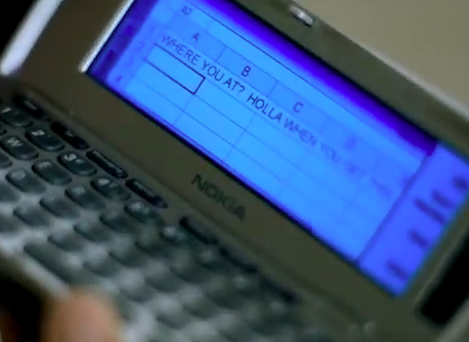
News just in from Hollywood: someone is making a film about Tinder. What will they call it? Swipe Right, perhaps? I Super Like You? Some subtle allusion to the app’s small role in the plotline? Nope – according to Hollywood Reporter, the film has been christened Worst Tinder Date Ever.
With the exception of its heavily branded title (You’ve Got Gmail, anyone?), Worst Tinder Date Ever follows neatly in the tradition of writers manhandling tech into storylines. Because really, why does it matter if it was a Tinder date? This “rom com with action elements” reportedly focuses on the couple’s exploits after they meet on the app, so the dogged focus on it is presumably just a ploy to get millennial bums on cinema seats.
Like the films on this list, it sounds like the tech in Worst Tinder Date Ever is just a byword for “modern and cool” – even as it demonstrates that the script is anything but.
Warning: spoilers ahead.
Lucy (2014)
Scarlett Johansson plays Lucy, a young woman who accidentally ingests large quantities of a new drug which promises to evolve your brain beyond normal human limits.
She evolves and evolves, gaining superhuman powers, until she hits peak human, and turns into first a supercomputer, and then a very long USB stick. USB-Lucy then texts Morgan Freeman’s character on his fliphone to prove that: “I am everywhere.”
Beyond the obvious holes in this plotline (this wouldn’t happen if someone’s brain evolved; texting a phone is not a sign of omnipotence), USB sticks aren’t even that good – as Business Insider points out: “Flash drives are losing relevance because they can’t compete in speed and flexibility with cloud computing services . . . Flashdrives also can’t carry that much information.”
Star Wars: The Force Awakens (2015)
If you stare at it hard enough, the plotline in the latest Star Wars film boils down to the following: a gaggle of people travels across space in order to find a map showing Luke Skywalker’s location, held on a memory stick in a drawer in a spherical robot. Yep, those pesky flash drives again.
It later turns out that the map is incomplete, and the rest of it is in the hands of another robot, R2-D2, who won’t wake up for most of the film in order to spit out the missing fragment. Between them, creator George Lucas and writer and director JJ Abrams have dreamed up a dark vision of the future in which robots can talk and make decisions, but can’t email you a map.
Willy Wonka and the Chocolate Factory (1971)
In which a scientist uses a computer to find the “precise location of the three remaining golden tickets” sent out into the world by Willy Wonka. When he asks it to spill the beans, it announces: “I won’t tell, that would be cheating.”

Image: Paramount Pictures.
The film inhabits a world where artificial intelligence has been achieved, but no one has thought to pull Charlie’s poor grandparents out of extreme poverty, or design a computer with more than three buttons.
Independence Day (1996)
When an alien invasion threatens Earth, David Levinson (Jeff Goldblum) manages to stop it by hacking the alien spaceship and installing a virus. Using his Mac. Amazing, really, that aliens from across the universe would somehow use computing systems so similar to our own.
Skyfall (2012)
In the Daniel Craig reboot of the series, MI6’s “Q” character (played by Ben Whishaw) becomes a computer expert, rather than just a gadget wizard. Unfortunately, this heralded some truly cringeworthy moments of “hacking” and “coding” in both Skyfall and Spectre (2014).
In the former, Bond and Q puzzle over a screen filled with a large, complex, web shape. They eventually realise it’s a map of subterranean London, but then the words “security breach” flash up, along with a skull. File under “films which make up their own operating systems because a command prompt box on a Windows desktop looks too boring”.
An honourable mention: Nelly and Kelly Rowland’s “Dilemma” (2009)
Not a movie, but how could we leave out a music video in which Kelly Rowland texts Nelly on a Microsoft Excel spreadsheet on a weird Nokia palm pilot?

Image: Vevo.
You’ll be waiting a long time for that response, Kelly. Try Tinder instead.






